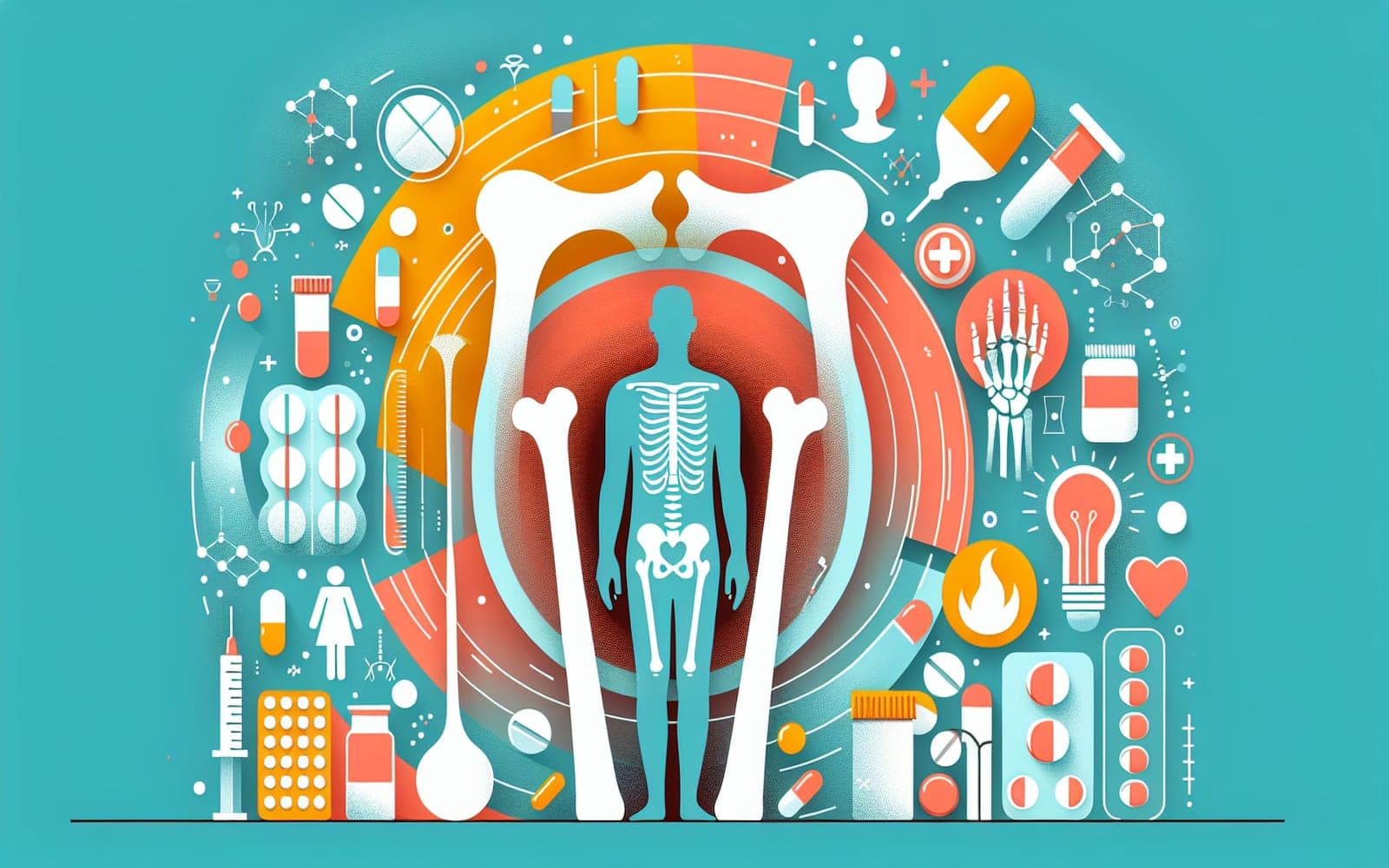The Hidden Dangers of Osteoporosis Medications
Published: Sep 02, 2024
Osteoporosis medications are essential, but they might carry hidden risks. Learn about the potential side effects that could impact your health.
Contents
Understanding Osteoporosis Medication Risks
Osteoporosis medications, such as bisphosphonates, are designed to improve bone density and reduce fracture risk. However, they are not without their potential drawbacks. From gastrointestinal issues to rare but severe conditions like osteonecrosis of the jaw, patients must be informed about possible side effects.
Shared Risks Across Administration Methods
Both oral and intravenous (IV) bisphosphonates can lead to hypocalcemia and musculoskeletal pain. Hypocalcemia occurs more frequently with IV doses, impacting those with vitamin D deficiency or inadequate calcium intake. Musculoskeletal pain, though rare, can be severe and persistent, necessitating discontinuation of the medication.

The Rare but Serious: Osteonecrosis of the Jaw
Osteonecrosis of the jaw (ONJ) is a rare but serious condition linked to bisphosphonate use. Risk factors include dental procedures and preexisting dental issues. Good oral hygiene and regular dental visits are recommended to mitigate risk, but patients should be aware of the signs and symptoms of ONJ.
Frequently Asked Questions
It's a condition of low calcium levels in the blood.
Yes, osteonecrosis of the jaw is a rare but possible side effect.
It can be severe and may not resolve after stopping medication.
Maintain good oral hygiene and regular dental check-ups.
Key Takeaways
Understanding the risks of osteoporosis medications helps ensure safer treatment decisions.
References
- Khosla S, Burr D, Cauley J, et al. Bisphosphonate-associated osteonecrosis of the jaw: report of a task force of the American Society for Bone and Mineral Research. J Bone Miner Res 2007; 22:1479.
- Black DM, Reid IR, Boonen S, et al. The effect of 3 versus 6 years of zoledronic acid treatment of osteoporosis: a randomized extension to the HORIZON-Pivotal Fracture Trial (PFT). J Bone Miner Res 2012; 27:243.
This article has been reviewed for accuracy by one of the licensed medical doctors working for Doctronic. Always discuss health information with your healthcare provider.
AI Doctor Visit Required
Appointments available 24/7
15-min consultation. No hidden costs.
AI Doctor Visit Required
For safety reasons we have been forced to end this consultation.
If you believe this is a medical emergency please call 911 or your local emergency services immediately.
If you are experiencing emotional distress, please call the the Suicide & Crisis Lifeline at 988 or your local crisis services immediately.
Contact us
You can also email us at help@doctronic.ai
We aim to reply within 5-7 days
How likely are you to recommend Doctronic to friends or family?


